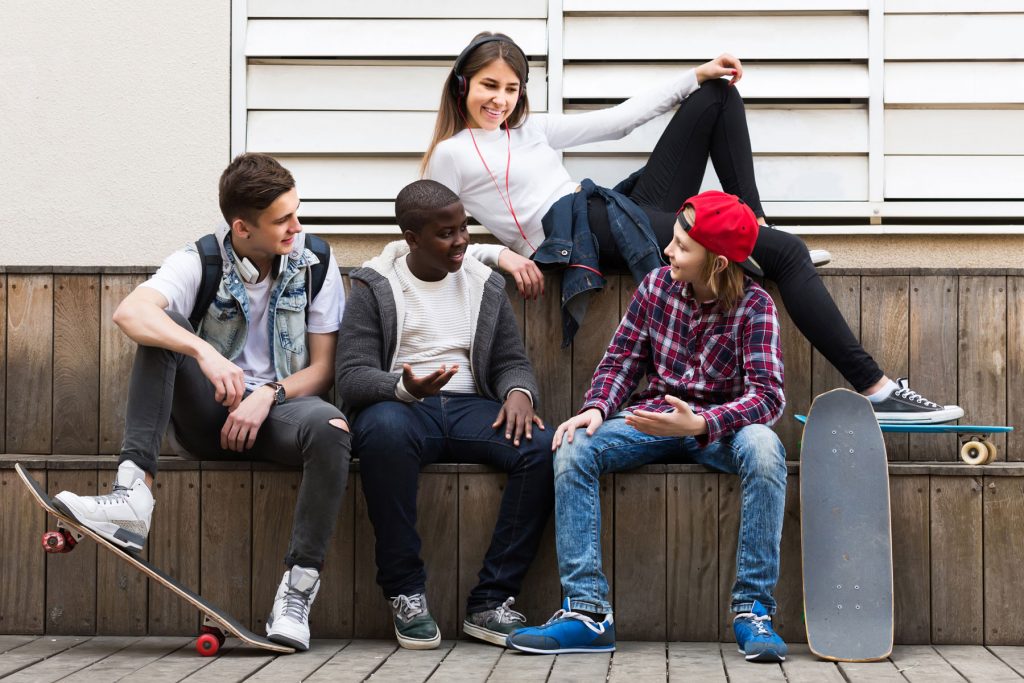If your teen has autism, you’ve probably seen how confusing social situations can be, from missing body language to misreading sarcasm. It’s hard to know how to help, especially when even simple conversations can feel like minefields. The good news is that social skills aren’t just something kids are born with—they can be learned and practiced over time. With the right support, your teen can build the tools to connect, communicate, and thrive.
How does autism affect social skills?
Teens with autism often experience challenges in understanding and interpreting nonverbal communication, such as facial expressions, body language, and tone of voice. They may also find it hard to follow the unspoken rules of conversation, such as knowing when to speak or how to maintain a topic. Because many autistic teens interpret information literally, sarcasm, metaphors, or indirect requests can be confusing.
Since so much of the communication people rely on every day is subtle or nonverbal, misreading these social cues can make it difficult for autistic people to feel like they fit in or form relationships. For their neurotypical peers, it might seem like they don’t want to connect or be friends, but that’s often not the case. These gaps in communication, which might feel like missed opportunities, can cause stress and low self-esteem for autistic teens.
Common social cue challenges for autistic teens
- Understanding when someone is joking versus being serious
- Reading body language that signals boredom or interest
- Knowing how close is “too close” when speaking with someone
- Recognizing when a conversation has gone on too long or shifted topics
- Interpreting tone of voice
- Knowing when to make or break eye contact
- Following unspoken “rules” in a group conversation
How to practice social skills at home
Helping your teen develop social skills can start with small, everyday interactions. Getting ready for the day, riding in the car, or eating dinner can be powerful opportunities for connection and growth.
Rehearse everyday conversations
Try walking through real-life scenarios with your teen. You could rehearse how they might introduce themselves to someone new, ask a teacher for help, or handle a disagreement with a friend. Practicing these situations in advance builds comfort and confidence.
Reflect on shows or movies together
Watching TV shows or movies can become a low-pressure way to explore social behavior. Pause during a scene and ask questions like, “How do you think that character feels?” or “What would you do in that situation?” This can help them recognize emotional cues and social dynamics.
Plan ahead for social events
If your teen is heading into a new or potentially overwhelming setting, like a family gathering or school activity, talk through what to expect. Go over who might be there, what kind of conversations could happen, and what to do if they feel uncomfortable. Preparing ahead of time lowers stress and builds trust.
Use visual or written guides
Some teens benefit from social scripts or visual tools that explain what’s expected in certain situations. These might outline steps for joining a group conversation or explain how to respond if someone is upset. These tools help make abstract social rules more concrete and logical, which can be much easier to understand.
Be a good role model
Modeling positive social behavior, which can be as minor as small talk, helps reinforce the very skills your teen is working on. Check in with them about the interactions afterward to see what they think happened, explain your intentions, and talk about how they can approach similar situations.
Support for autistic teens and families
At Family First, we created The Nest to give neurodivergent teens the structure, support, and real-life experiences they need to build confidence in social situations. Through hands-on learning, guided practice, and compassionate coaching, we help teens strengthen the skills that make connection possible—without asking them to be anyone but themselves.
Here’s how we do it:
- Daily social interaction: Teens practice communication and connection in every part of their day with guidance from trained clinicians.
- Role-play & rehearsal: We break down social scenarios and walk through them together, helping teens feel more prepared for the real thing.
- Experiential therapy: Adventure-based activities like paddleboarding and team challenges build trust, collaboration, and real-world social skills.
- Creative expression: Music, art, and drama offer nonverbal ways to connect, communicate, and build emotional awareness.
- Self-advocacy coaching: Teens learn how to identify their needs and speak up at school, at home, and in everyday interactions.
- Family involvement: Through coaching, education, and immersive retreats, we help families grow together and support lasting change.
Reach out to Family First today
The Nest is a boys-only residential program located at our Palm Beach Gardens, Florida campus. It’s designed specifically for neurodivergent teens who need a safe, structured, and affirming space to grow. With 24/7 support, personalized care, and a highly trained clinical team, The Nest can help your son build social confidence, emotional awareness, and real-life skills he can carry into adulthood.
If your son is struggling to connect or thrive socially, you don’t have to figure it out alone. Contact Family First today to learn how The Nest can support him—and your family—as you navigate this journey together. Call 888.904.5947 or contact us online now.

